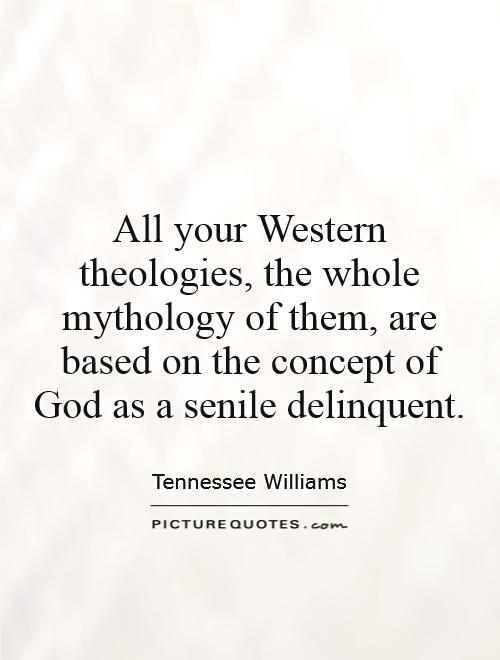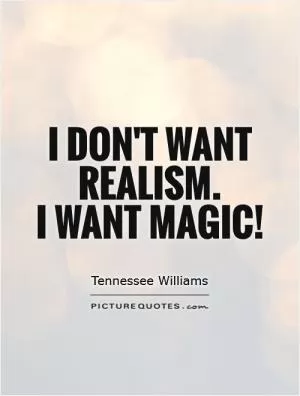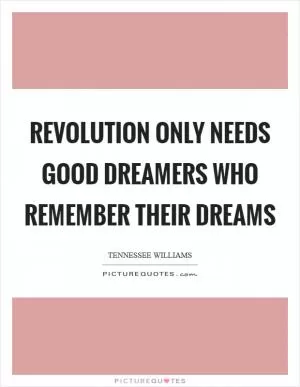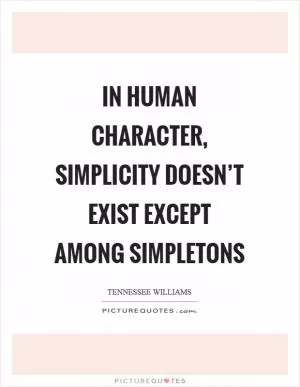All your Western theologies, the whole mythology of them, are based on the concept of God as a senile delinquent

All your Western theologies, the whole mythology of them, are based on the concept of God as a senile delinquent
Tennessee Williams, the renowned American playwright, was known for his provocative and often controversial views on religion and spirituality. In his works, Williams frequently explored themes of guilt, redemption, and the nature of God, often challenging traditional Western theological beliefs. One of his most famous quotes, "All your Western theologies, the whole mythology of them, are based on the concept of God as a senile delinquent," encapsulates his disdain for organized religion and its portrayal of a vengeful and capricious deity.Williams' criticism of Western theologies can be seen in many of his plays, where characters grapple with their own beliefs and doubts about the existence of a benevolent higher power. In works such as "The Glass Menagerie" and "A Streetcar Named Desire," Williams delves into the complexities of faith and the ways in which it can both comfort and torment individuals. The character of Amanda Wingfield in "The Glass Menagerie," for example, clings to her Southern Baptist upbringing as a source of solace and guidance, but ultimately finds herself disillusioned by the harsh realities of life.
Williams' portrayal of God as a "senile delinquent" reflects his belief that traditional religious doctrines are outdated and fail to address the complexities of human experience. He saw organized religion as a tool of control and manipulation, used to justify oppression and violence in the name of a divine authority. In his plays, Williams often depicted characters who struggle to find meaning and purpose in a world that seems indifferent or hostile to their desires.
Despite his skepticism towards organized religion, Williams was deeply interested in the spiritual and metaphysical dimensions of human existence. His characters grapple with questions of morality, redemption, and the possibility of transcendence, seeking solace and understanding in the face of suffering and loss. In this sense, Williams' critique of Western theologies can be seen as a call for a more compassionate and inclusive understanding of the divine, one that embraces the complexities of human nature and offers hope for a more just and equitable world.












 Friendship Quotes
Friendship Quotes Love Quotes
Love Quotes Life Quotes
Life Quotes Funny Quotes
Funny Quotes Motivational Quotes
Motivational Quotes Inspirational Quotes
Inspirational Quotes